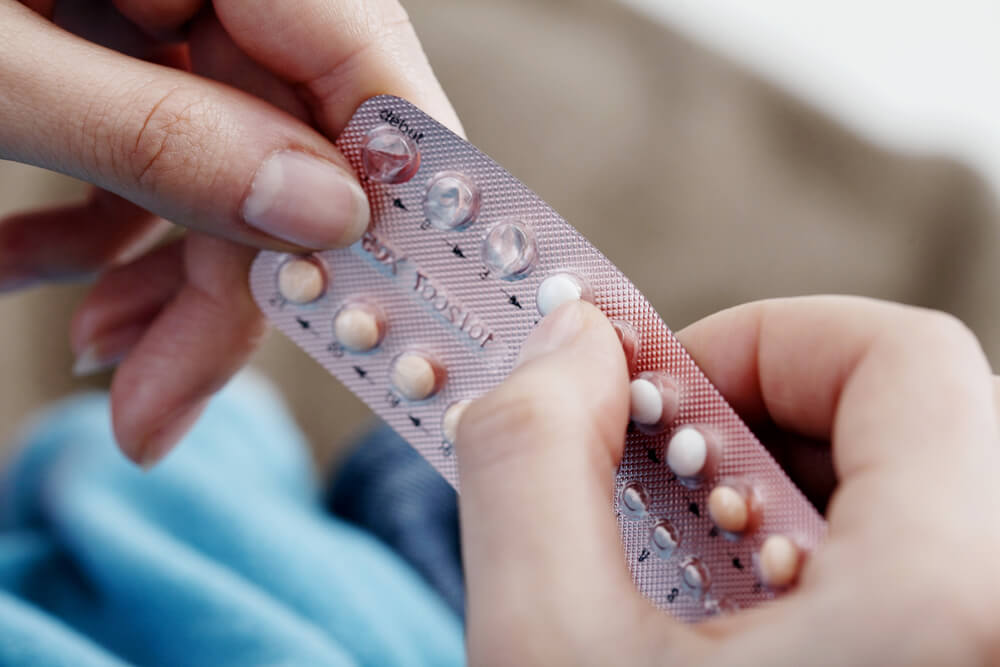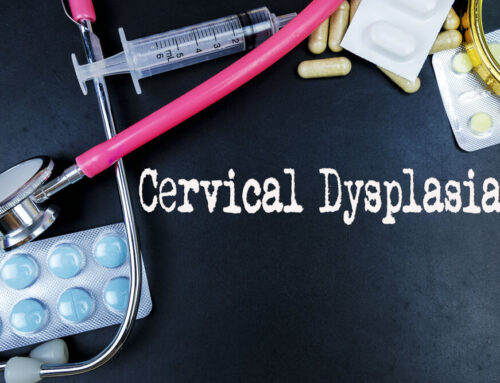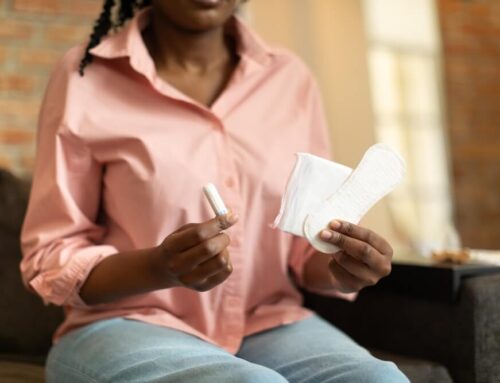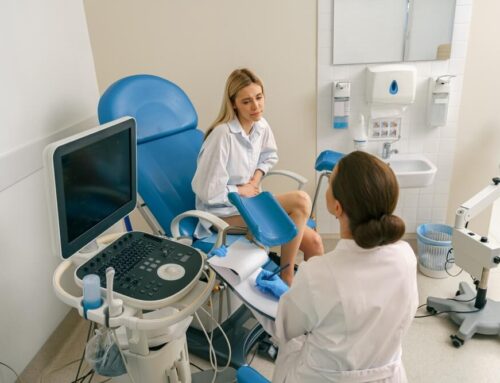Navigating the delicate balance between contraception and maintaining a satisfying sex life can be challenging for individuals on birth control. While many appreciate the convenience and effectiveness of birth control, some may experience a decline in libido as a side effect.
In this comprehensive guide, with the help of our female gynecology specialist in Margate, Florida, we will explore expert-backed strategies on how to increase sex drive while on birth control. By understanding the factors at play and implementing evidence-based approaches, individuals can reclaim their sexual well-being and enjoy a fulfilling, intimate life.
The Link Between Birth Control and Libido

Many individuals on hormonal birth control, such as oral contraceptives, patches, or hormonal intrauterine devices (IUDs), may notice a decrease in libido. The hormonal changes induced by these contraceptives can influence various aspects of sexual health, including reduced arousal, diminished vaginal lubrication, and changes in sexual desire. Understanding the mechanisms behind these effects is crucial to developing strategies that can counteract the impact on libido.
The impact of hormonal birth control on sexual health is a multifaceted aspect that involves intricate interactions between the body’s hormonal system and the mechanisms that govern sexual response. Hormonal contraceptives, including oral contraceptives, patches, and hormonal intrauterine devices (IUDs), are widely used for their effectiveness in preventing pregnancy. However, for some individuals, a noticeable decline in libido can be an unintended side effect. To address this, it’s crucial to delve into the mechanisms behind these effects and explore strategies that can help counteract the impact on libido.
Hormonal Changes
Hormonal contraceptives primarily work by altering the body’s natural hormonal balance, typically through the introduction of synthetic forms of estrogen and/or progestin. While these alterations are effective in preventing ovulation and pregnancy, they can also influence the intricate hormonal dance that governs sexual health.
Reduced Arousal
One of the noticeable impacts of hormonal contraceptives on sexual health is a reduction in arousal. Estrogen, a key reproductive hormone, plays a vital role in maintaining healthy genital tissues and promoting blood flow to the pelvic region. Synthetic hormones in contraceptives can disrupt this balance, potentially leading to decreased sensitivity and arousal.
Diminished Vaginal Lubrication
Hormonal fluctuations induced by contraceptives can affect the natural lubrication of the vaginal tissues. Reduced estrogen levels, in particular, may contribute to dryness and discomfort during sexual activity. This can not only diminish pleasure but also lead to discomfort or pain, impacting overall sexual satisfaction.
Changes in Sexual Desire
Hormonal contraceptives can also influence overall sexual desire. The intricate interplay of hormones involved in sexual response may be altered, leading to shifts in libido. Some individuals may experience a decrease in sexual desire, while others might notice changes in the intensity or frequency of sexual thoughts and fantasies.
Understanding these mechanisms is a crucial first step in addressing the impact of hormonal birth control on libido. With this knowledge, individuals and healthcare professionals can work collaboratively to develop strategies that mitigate these effects and foster a more positive sexual experience.
Expert-Backed Strategies
Consult with a Healthcare Professional
The first step in addressing low sex drive on birth control is consulting with a healthcare professional. Discussing concerns about libido with a knowledgeable healthcare provider can help rule out other potential causes and guide the selection of a contraceptive method that may have a lesser impact on sexual desire.
Hormonal Adjustments: If birth control is identified as the culprit, healthcare professionals may recommend adjustments in hormonal dosages or alternative contraceptive methods that are less likely to affect libido.
Non-Hormonal Options: Consideration of non-hormonal contraceptive options, such as copper IUDs, may be explored for individuals seeking effective birth control without the hormonal influence on libido.
Lifestyle Modifications
Stress Management: Chronic stress can contribute to low libido. Incorporating stress management techniques such as mindfulness, meditation, or yoga can help create a more relaxed state conducive to sexual well-being.
Regular Exercise: Physical activity is linked to improved mood and increased blood flow, which can positively impact sexual desire. Engaging in regular exercise can be a valuable strategy to boost libido.
Adequate Sleep: Sleep plays a crucial role in hormonal balance and overall well-being. Prioritize sufficient and quality sleep to support optimal sexual health.
Nutritional Support
Balanced Diet: A diet rich in nutrients can support overall health, including sexual well-being. Consider incorporating foods rich in zinc, vitamin D, and omega-3 fatty acids, as they have been associated with improved libido.
Supplements: In consultation with healthcare professionals, individuals may explore the use of supplements such as maca root, ginseng, or L-arginine, which are believed to have potential libido-enhancing properties.
Communication and Intimacy

Open Communication: Discussing concerns about low sex drive on birth control with a partner fosters understanding and support. Open communication can strengthen the emotional connection and alleviate stress related to sexual intimacy.
Exploring Intimacy: Experimenting with different forms of intimacy, such as sensual massages, increased affection, or trying new activities together, can contribute to a more satisfying sexual connection.
Shared Fantasy Creation: Collaboratively creating and sharing sexual fantasies with each other can be an intimate and exciting way to deepen connection. This activity not only fosters open communication but also allows partners to express desires and explore new aspects of their sexuality together.
Regular Check-Ins: Establishing a routine for regular check-ins about your intimate life can provide a structured platform for discussing needs, desires, and any changes in libido. This proactive approach ensures that both partners feel heard and valued, fostering a supportive environment for maintaining a healthy sex life.
Surprise Gestures: Incorporating surprise gestures into your relationship, such as leaving thoughtful notes or planning unexpected romantic evenings, can add an element of surprise and delight. These small, spontaneous acts can create a positive atmosphere that carries into the bedroom.
Educational Exploration Together: Taking a proactive approach to education about sexual health and pleasure can be an intimate journey for partners. Exploring reputable resources together, attending sexual wellness workshops, or reading literature on enhancing intimacy can be both enlightening and bonding.
Physical Connection Beyond Sex: Embracing physical touch outside of sexual encounters is crucial. Simple gestures like holding hands, cuddling, or even a gentle touch on the arm can contribute to a sense of closeness and build anticipation for more intimate moments.
Setting the Mood: Creating a conducive environment for intimacy can make a significant difference. Lighting candles, playing soft music, or investing in comfortable and aesthetically pleasing bedding can enhance the overall ambiance and make intimate moments more enjoyable.
Finishing Thoughts
Experiencing low sex drive while on birth control is a common concern, but it’s essential to recognize that there are viable strategies to address and mitigate this issue. Consulting with healthcare professionals, implementing lifestyle modifications, considering nutritional support, and fostering open communication and intimacy can collectively contribute to a more positive and fulfilling sexual experience while on birth control. Remember, individual responses may vary, and it’s crucial to tailor these strategies to one’s unique needs and preferences. By taking a proactive and informed approach, individuals can prioritize both their contraceptive needs and their sexual well-being.
That said, if you would like to learn more about this topic, feel free to schedule an appointment at Fern F. Taisenchoy-Bent, MD, LLC.










